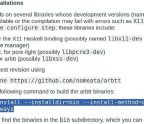Emulating the Commodore VIC-20

Credit: https://vice-emu.sourceforge.io
Back in 1980 we eagerly anticipated The Empire Strikes Back, and Commodore announced its new eight-bit home computer the VIC-20 (also known as the VC-20 in Germany and VIC-1001 in Japan). It was powered by a MOS Technology 6502 running at 1.108MHz (PAL) or 1.02MHz for NTSC and came with 20KB of stock RAM, upgradeable via cartridge-based expansion units.
Marketed as the “Friendly Computer” the VIC-20 was a departure from the all-in-one Commodore PET (see LXF276). Instead, for $300 ($1,000 in 2022 money) we had a “breadbin” case that used existing TVs as screens – something synonymous with the 1980s computing scene. The VIC-20 was meant to be part of our home. It was sold via supermarkets and toy stores as a rival to the booming video game market. Commodore made the bold move to hire William Shatner (of Star Trek fame) to be the VIC-20 spokesman. Shatner extolled the virtues of the VIC-20 in a highly popular ad that described it as “The Wonder Computer of the 1980s”.
The VIC-20 was marketed to be more cost-effective than the PET and was aimed squarely at the dominance of the
You’re reading a preview, subscribe to read more.
Start your free 30 days





